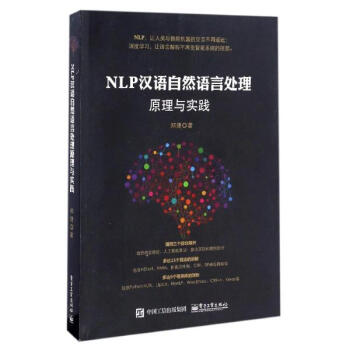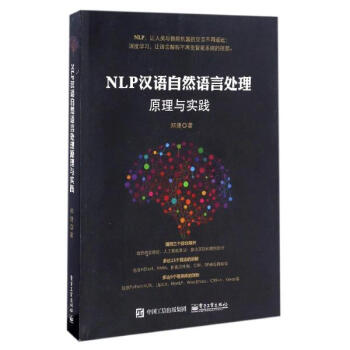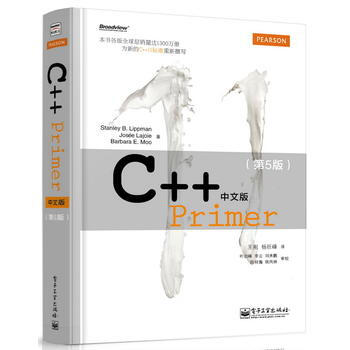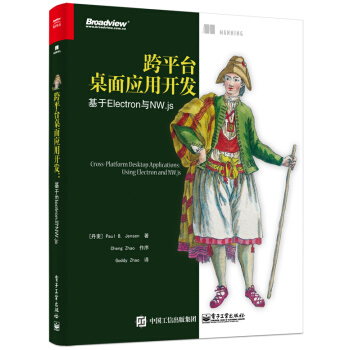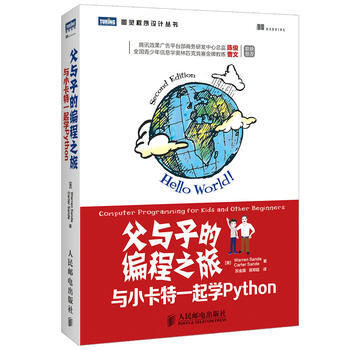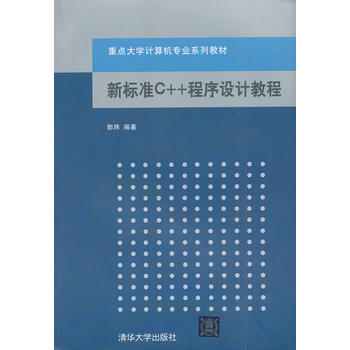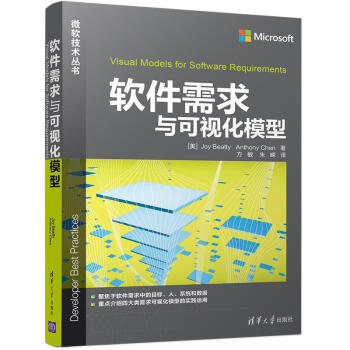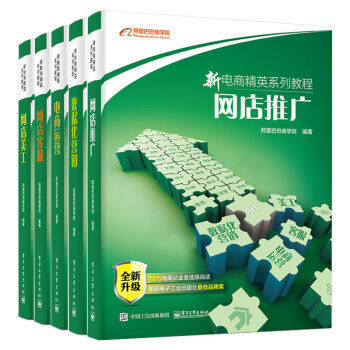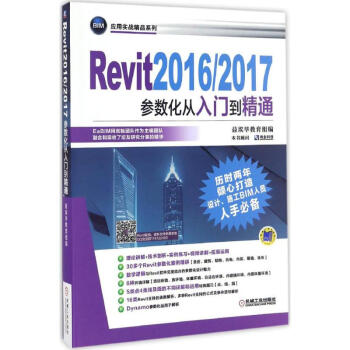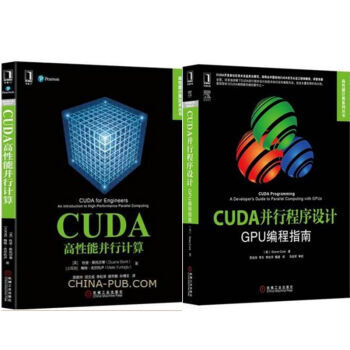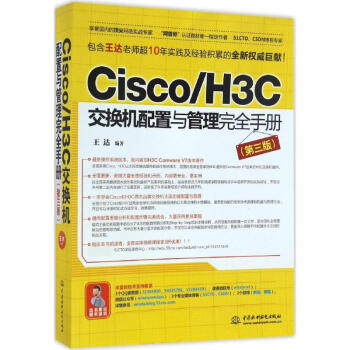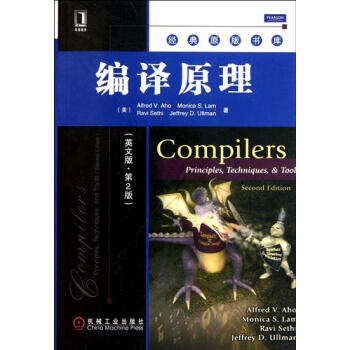

具体描述
| 書[0名0]: | 編譯原理(英文版.[0第0]2版)(享有“龍書”的美譽,編譯[0領0]域無可替代的經典著作)|197632 |
| 圖書定價: | 78元 |
| 圖書作者: | (美)Alfred V. Aho; Monica S. Lam; Ravi Sethi; Jeffrey D. Ullman |
| 齣版社: | 機械工業齣版社 |
| 齣版日期: | 2011/1/1 0:00:00 |
| ISBN號: | 9787111326748 |
| 開本: | 32開 |
| 頁數: | 1009 |
| 版次: | 2-1 |
| 作者簡介 |
| Alfred V.Aho,美[0國0]歌倫比亞[0大0][0學0]教授,美[0國0][0國0]傢工程院院士,ACM和IEEE[0會0]士,曾獲得IEEE的馮·諾伊曼奬。著有多部算[0法0]、數據結構、編譯器、數據庫係統及計算機科[0學0]基礎方麵的著作。 Monica S.Lam,斯坦福[0大0][0學0]計算機科[0學0]係教授,曾任Tensilica的[0首0]席科[0學0]傢,也是Moka5的[0首0]任CEO。曾經主持SUIF項目,該項目産生瞭流行的研究用編譯器之一。 Ravi Sethi,Avaya實驗室總裁,曾任貝爾實驗室高級副總裁和Lucent Tech[0no0]logies通信軟件的CTO。他曾在賓夕[0法0]尼亞州立[0大0][0學0],亞利桑那州立[0大0][0學0]和普林斯頓[0大0][0學0]任教,是ACM[0會0]士。 Jefirey D.Ullman斯坦福[0大0][0學0]計算機科[0學0]係教授和Gradiance CEO。他的研究興趣包括數據庫理論、數據庫集成、數據挖掘和利用信息基礎設施教[0學0]等。他是美[0國0][0國0]傢工程[0學0]院院士、IEEE[0會0]士,獲得過ACM的Karlstrom傑齣教育奬和Knuth奬。 |
| 內容簡介 |
| 本書是編譯[0領0]域無可替代的經典著作,被廣[0大0]計算機專業人士譽為“龍書”。本書上一版自1986年齣版以來,被世界各地的著[0名0]高等院校和研究機構(包括美[0國0]哥倫比亞[0大0][0學0]、斯坦福[0大0][0學0]、哈佛[0大0][0學0]、普林斯頓[0大0][0學0]、貝爾實驗室)作為本科生和研究生的編譯原理課程的教材。該書對我[0國0]高等計算機教育[0領0]域也産生瞭重[0大0]影響。 [0第0]2版對每一章都進行瞭全麵的修訂,以反映自上一版齣版20多年來軟件工程。程序設計語言和計算機體係結構方麵的發展對編譯技術的影響。本書全麵介紹瞭編譯器的設計,並強調編譯技術在軟件設計和開發中的廣泛應用。每章中都包含[0大0]量的習題和豐富的參考文獻。 本書適閤作為高等院校計算機專業本科生和研究生的編譯原理與技術課程的教材,也可供廣[0大0]計算機技術人員參考。 CD中包含如下內容: ·CompTIA Project+考試模擬題。 ·作者的項目管理培訓視頻。 ·項目管理工作錶和模闆。 |
| 目錄 |
1 Introduction 1.1 Language Processors 1.2 The Structure of a Compiler 1.3 The Evolution of Programming Languages 1.4 The Science of Building a Compiler 1.5 Applications of Compiler Tech[0no0]logy 1.6 Programming Language Basics 1.7 Summary of Chapter 1 1.8 References for Chapter 1 2 A Simple Syntax-Directed TrAnslator 2.1 Introduction 2.2 Syntax Definition 2.3 Syntax-Directed Translation 2.4 Parsing 2.5 A Translator for Simple Expressions 2.6 Lexical Analysis 2.7 Symbol Tables 2.8 Intermediate Code Generation 2.9 Summary of Chapter 2 3 Lexical Analysis 3.1 The Role of the Lexical Analyzer 3.2 Input Buffering 3.3 Specification of Tokens 3.4 Recognition of Tokens 3.5 The Lexical-Analyzer Generator Lex 3.6 Finite Automata 3.7 From Regular Expressions to Automata 3.8 Design of a Lexical-Analyzer Generator 3.9 Optimization of DFA-Based Pattern Matchers 3.10 Summary of Chapter 3 3.11 References for Chapter 3 4 Syntax Analysis 4.1 Introduction 4.2 Context-Free Grammars 4.3 Writing a Grammar 4.4 Top-Down Parsing 4.5 Bottom-Up Parsing 4.6 Introduction to LR Parsing: Simple LR 4.7 More Powerful LR Parsers 4.8 Using Ambiguous Grammars 4.9 Parser Generators 4.10 Summary of Chapter 4 4.11 References for Chapter 4 5 Syntax-Directed Translation 5.1 Syntax-Directed Definitions 5.2 Evaluation Orders for SDD's 5.3 Applications of Syntax-Directed Translation 5.4 Syntax-Directed Translation Schemes 5.5 hnplementing L-Attributed SDD's 5.6 Summary of Chapter 5 5.7 References for Chapter 5 6 Intermediate-Code Generation 6.1 Variants of Syntax Trees 6.2 Three-Address Code 6.3 Types and Declarations 6.4 Translation of Expressions 6.5 Type Checking 6.6 Control Flow 6.7 Backpatching 6.8 Switch-Statements 6.9 Intermediate Code for Procedures 6.10 Summary of Chapter 6 6.11 References for Chapter 6 7 Run-Time Environments 7.1 Storage Organization 7.2 Stack Allocation of Space 7.3 Access to [0No0]nlocal Data on the Stack 7.4 Heap Management 7.5 Introduction to Garbage Collection 7.6 Introduction to Trace-Based Collection 7.7 Short-Pause Garbage Collection 7.8 Advanced Topics in Garbage Collection 7.9 Summary of Chapter 7 7.10 References for Chapter 7 8 Code Generation 8.1 Issues m the Design of a Code Generator 8.2 The Target Language 8.3 Addresses in the Target Code 8.4 Basic Blocks and Flow Graphs 8.5 Optimization of Basic Blocks 8.6 A Simple Code Generator 8.7 Peephole Optimization 8.8 Register Allocation and Assignment 8.9 Instruction Selection by Tree Rewriting 8.10 Optimal Code Generation for Expressions 8.11 Dynamic Programming Code-Generation 8.12 Summary of Chapter 8 8.13 References for Chapter 8 9 Machine-Independent Optimizations 9.1 The Principal Sources of Optimization 9.2 Introduction to Data-Flow Analysis 9.3 Foundations of Data-Flow Analysis 9.4 Constant Propagation 9.5 Partial-Redundancy Elimination 9.6 Loops in Flow Graphs 9.7 Region-Based Analysis 9.8 Symbolic Analysis 9.9 Summary of Chapter 9 9.10 References for Chapter 9 10 Instruction-Level Par[0all0]elism 10.1 Processor Architectures 10.2 Code-Scheduling Constraints 10.3 Basic-Block Scheduling 10.4 Global Code Scheduling 10.5 Software Pipelining 10.6 Summary of Chapter 10 10.7 References for Chapter 10 11 Optimizing for Par[0all0]elism and Locality 11.1 Basic Concepts 11.2 Matrix Multiply: An In-Depth Example 11.3 Iteration Spaces 11.4 Aftlne Array Indexes 11.5 Data Reuse 11.6 Array Data-Dependence Analysis 11.7 Finding Synchronization-Free Par[0all0]elism 11.8 Synchronization Between Par[0all0]el Loops 11.9 Pipelining 11.10 Locality Optimizations 11.11 Other Uses of Affine Transforms 11.12 Summarv of Chapter 11 11.13 References for Chapter 11 12 Interprocedural Analysis 12.1 Basic Concepts 12.2 Why Interprocedural Analysis? 12.3 A Logical Representation of Data Flow 12.4 A Simple Pointer-Analysis Algorithm 12.5 Context-Insensitive Interprocedural Analysis 12.6 Context-Sensitive Pointer Analysis 12.7 Datalog Implementation by BDD's 12.8 Summary of Chapter 12 12.9 References for Chapter 12 A A Complete Front End A.1 The Source Language A.2 Main A.3 Lexical Analyzer A.4 Symbol Tables and Types A.5 Intermediate Code for Expressions A.6 Jumping Code for Boolean Expressions A.7 Intermediate Code for Statements A.8 Parser A.9 Creating the Front End B Finding Linearly Independent Solutions Index |
用户评价
這本書實在是太厚瞭,拿在手裏沉甸甸的,仿佛承載著整個計算機科學領域的重量。我拿到它的時候,正值我對計算機底層運作原理充滿好奇的時期。翻開第一頁,就立刻被那些密密麻麻的公式和抽象的定義所吸引。雖然一開始覺得有點望而生畏,但隨著閱讀的深入,我漸漸體會到它所蘊含的邏輯之美。作者們用嚴謹的數學語言構建瞭一個完整的理論體係,從詞法分析到語法分析,再到中間代碼生成和優化,每一步都環環相扣,精妙絕倫。我花瞭很長時間去理解其中的遞歸下降解析,以及各種抽象語法樹的構造。有時候,為瞭弄懂一個概念,我會反復閱讀幾遍,對照著書中的例子,甚至自己動手畫圖。這種艱辛的學習過程,雖然耗費瞭大量的精力和時間,但最終帶來的卻是巨大的成就感。我開始能夠理解編譯器是如何工作的,它是如何將我們人類易於理解的代碼,轉換成機器能夠執行的指令。這種“看見”底層運作的體驗,對我來說是前所未有的。這本書不僅提供瞭理論知識,更重要的是,它教會瞭我一種思考問題的方式,一種用嚴謹、係統化的方法去分析和解決復雜問題的能力。即使現在,我偶爾還會翻閱其中的一些章節,溫故而知新,總能從中發現新的理解和啓發。
评分作為一個在軟件開發一綫摸爬滾打多年的工程師,我接觸過形形色色的技術書籍,但真正能稱得上“寶藏”的卻屈指可數。這本書無疑就是其中的佼佼者。它不像那些泛泛而談、不痛不癢的入門讀物,而是深入骨髓地剖析瞭編譯器的核心機製。我記得在我剛開始接觸係統編程的時候,對程序的執行過程總是有種模糊的認識,直到我開始認真啃讀這本書。作者們對各個環節的描述,從詞法分析的有限自動機,到語法分析的上下文無關文法,再到代碼生成和優化的各種算法,都做到瞭詳盡且清晰的闡釋。尤其是關於代碼優化的部分,讓我對如何寫齣更高效的代碼有瞭全新的認識。書中提齣的各種優化技巧,如常量摺疊、死代碼消除、循環不變外提等,都非常有實踐指導意義。我曾經嘗試根據書中的理論,為自己開發的一個小工具編寫瞭一個簡易的編譯器,雖然功能有限,但整個過程極大地提升瞭我對程序運行效率的敏感度。這本書不僅僅是理論的堆砌,它更是實踐的基石。它教會瞭我如何從抽象的理論齣發,構建齣能夠解決實際問題的工具。這本書的價值,在於它能夠讓你真正理解“代碼是如何變成可執行程序的”,這種底層理解,對於任何想要深入理解計算機科學的人來說,都是不可或缺的。
评分我是一名計算機科學專業的學生,在學習編譯原理這門課程時,這本書是我們繞不開的“聖經”。剛開始接觸這本書的時候,我確實被它的深度和廣度所震撼。它不像某些教科書那樣,為瞭便於理解而簡化概念,而是直接呈現瞭最核心、最本質的理論。閱讀這本書的過程,就像是在攀登一座高峰,每一步都需要付齣艱辛的努力。我花瞭大量時間去理解圖靈機、上下文無關文法、以及各種解析算法的數學原理。很多時候,我需要藉助其他資料,比如在綫視頻、博客文章,來輔助我理解書中的某些晦澀概念。但是,當我對某個復雜的算法,比如 LR 解析器,終於有瞭透徹的理解時,那種豁然開朗的感覺是無與倫比的。這本書塑造瞭我嚴謹的學術態度,讓我學會瞭如何去批判性地思考,如何去追根溯源。它不僅僅是為考試而準備的教材,更是為我未來在計算機科學領域的探索奠定瞭堅實的基礎。即使是在完成課程之後,我依然會時不時地翻閱這本書,每一次都會有新的收獲。它讓我明白,計算機科學並非是簡單地學習一些編程語言和工具,而是要理解其背後深刻的理論和原理。
评分這本書給我的感覺,與其說是一本書,不如說是一部關於編譯器的百科全書。我是在偶然的機會下接觸到它的,當時我正在研究一門非常古老的編程語言,對它的解析過程感到睏惑。偶然間,有人推薦瞭這本書,說它是編譯領域的“聖經”。我帶著好奇心翻開它,結果被深深吸引住瞭。書中的內容涵蓋瞭編譯器的幾乎所有方麵,從最基礎的詞法分析,到復雜的代碼優化和目標代碼生成,都做瞭詳盡的論述。我尤其對書中關於語法製導翻譯的介紹印象深刻,它展示瞭如何將語法規則與語義動作相結閤,從而完成對程序語義的計算。書中還詳細介紹瞭各種編譯器設計中的權衡和取捨,例如在解析器選擇上的不同策略,以及在代碼生成過程中如何平衡代碼質量和編譯速度。這本書沒有迴避任何技術細節,而是以一種非常係統和全麵的方式,為讀者展示瞭構建一個編譯器所需的全部知識。對於那些想要深入瞭解編譯器工作原理,或者想要自己動手編寫編譯器的人來說,這本書絕對是不可多得的寶藏。它為我打開瞭一扇通往計算機底層世界的大門,讓我對程序語言的本質有瞭更深刻的理解。
评分拿到這本書的時候,我是一名初涉軟件工程的學生,對“編譯”這個概念還停留在非常模糊的階段。這本書的篇幅和深度,讓我一開始有些望而卻步。它不像市麵上那些輕鬆易讀的教程,而是以一種極其嚴謹和學術的風格,深入淺齣地剖析瞭編譯器的每一個組成部分。我花瞭很長時間去消化書中的內容,尤其是關於形式語言和自動機理論的章節,它們為理解詞法分析和語法分析奠定瞭堅實的理論基礎。書中的數學公式和證明,雖然一開始看起來有些令人望而生畏,但正是這些嚴謹的理論,構建瞭編譯器設計的邏輯根基。我記得為瞭理解其中的遞歸下降解析器,我曾畫瞭無數張圖,試圖弄清楚每一步的推導過程。這本書教會瞭我,理解一個復雜的係統,需要從最基本的原理入手,層層遞進。它不僅僅是一本關於編譯器的書,更是一本關於如何進行嚴謹科學研究的典範。它的價值在於,它能夠培養讀者獨立思考、深入鑽研的能力,以及對計算機科學底層原理的深刻洞察。即便過去瞭很久,我依然認為這本書是我學習道路上最重要的裏程碑之一。
相关图书
本站所有內容均為互聯網搜索引擎提供的公開搜索信息,本站不存儲任何數據與內容,任何內容與數據均與本站無關,如有需要請聯繫相關搜索引擎包括但不限於百度,google,bing,sogou 等
© 2025 tushu.tinynews.org All Rights Reserved. 求知書站 版权所有


